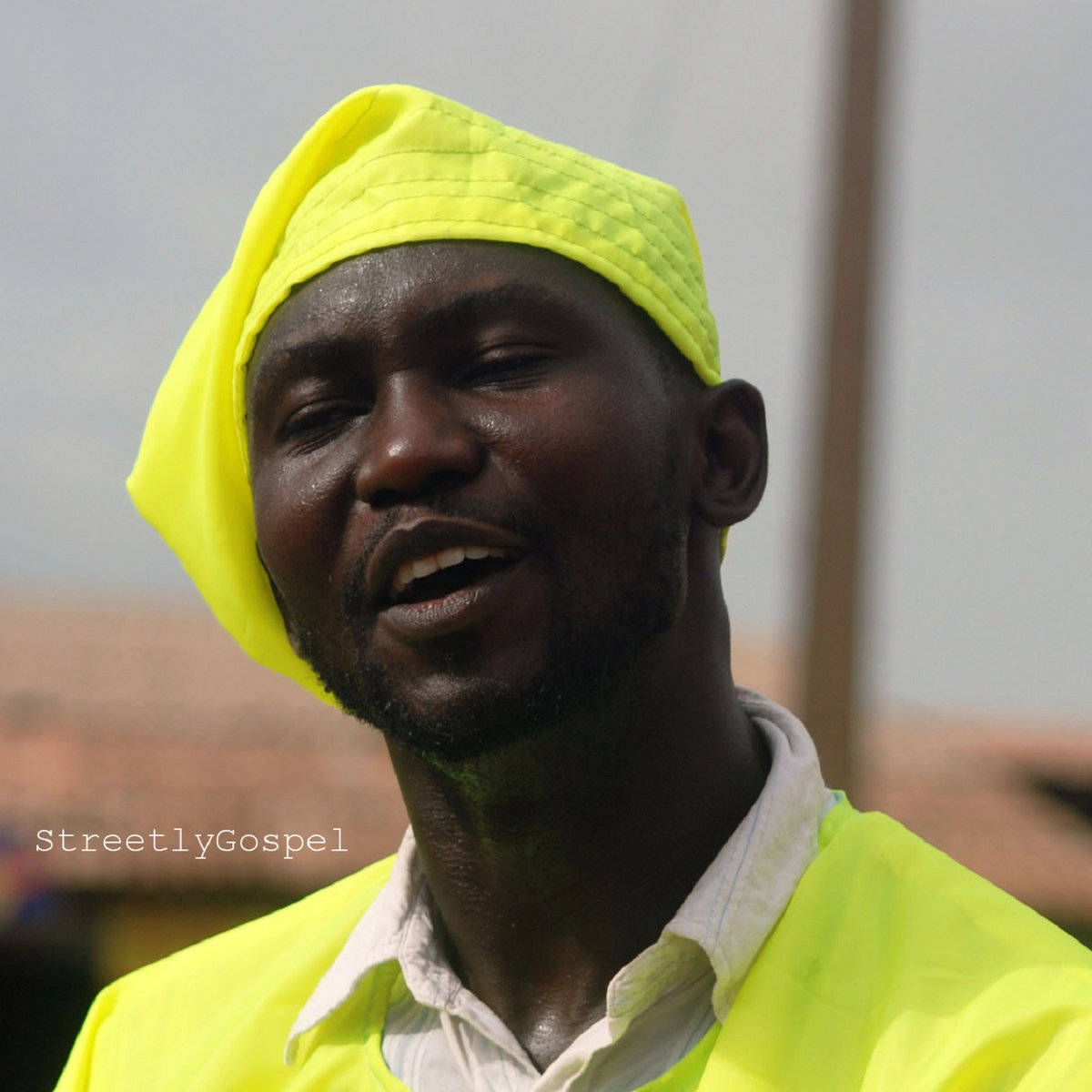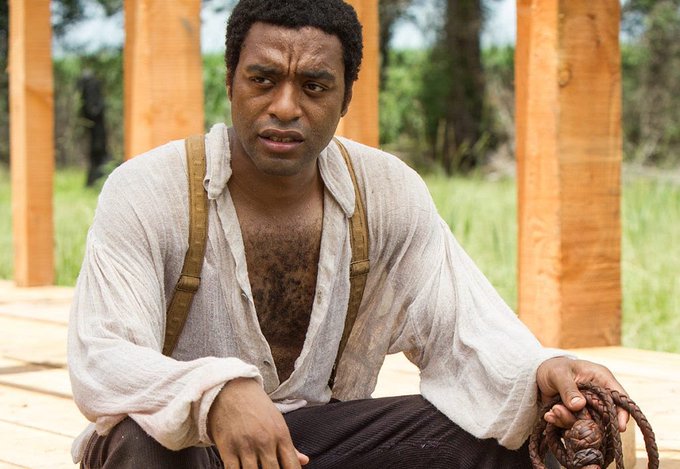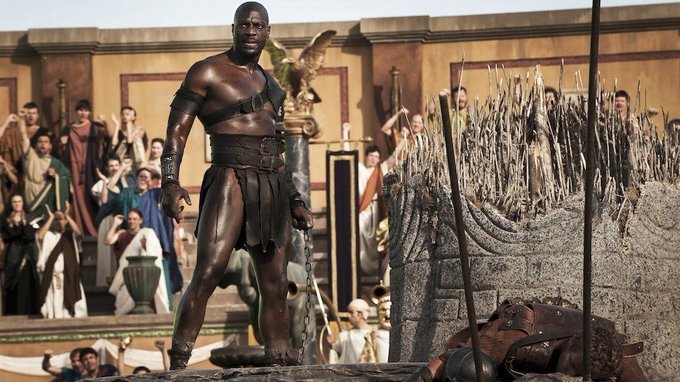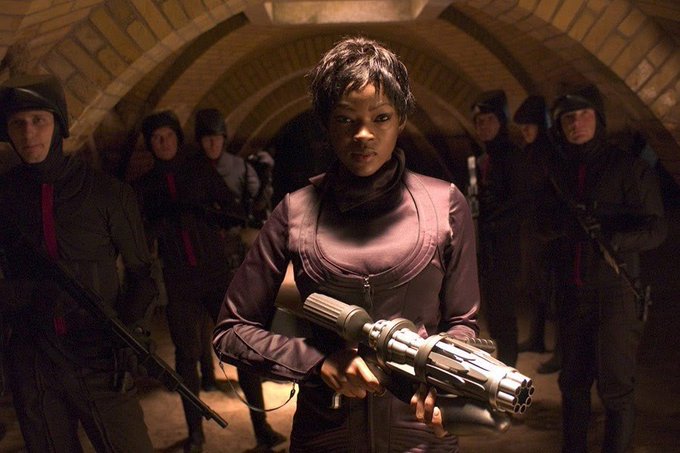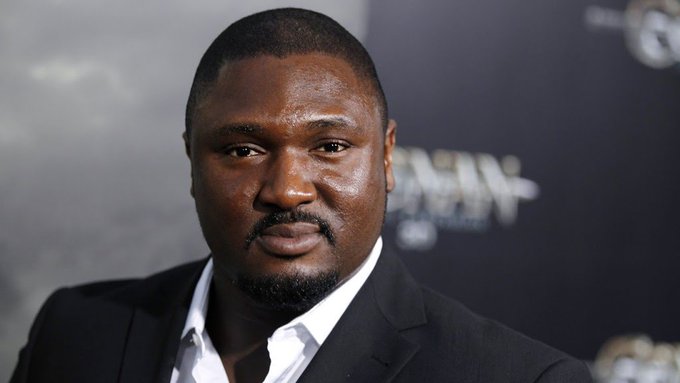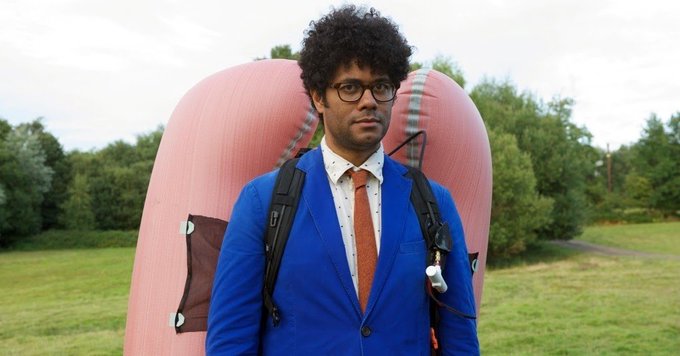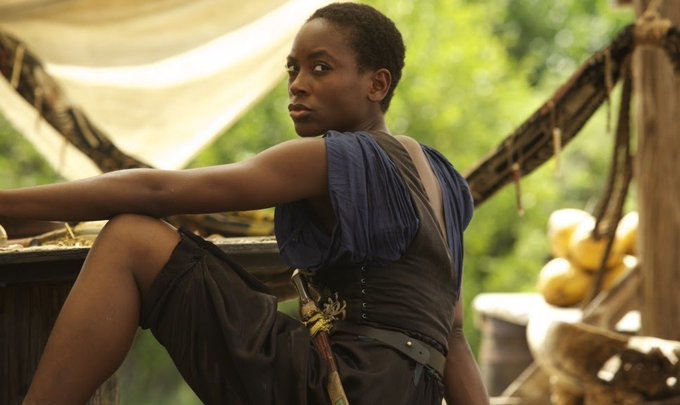This is a well synchronized bata dance from a traditionalist during our visit to Osun celebration. How will you feel seeing your father dancing like this in a public function? This is an acient Nigerian Traditional dance style peculiar to the Yoruba people from the Western part of Nigeria., definitely, our parent had the best of time before the kind of JappOfficial took over for this generation.
Assuming you and your father went to a public function and of a sudden, your old man stood up and started dancing like this man, how will you feel?
The footage is curled from our visit to Yeye Osun during one of the traditional festival in Nigeria, check the full video below.Thank you for watching, we shall bring you another amazing episode, please kindly subscribe to our channel https://www.youtube.com/africandiarytv. Thanks.
We seek to build a community with exciting African diaries, news, buzz, interviews and gist. Follow us on YouTube, Facebook, Twitter and Instagram @AfricanDiaryTV
Translate
Can your father dance like this in public?
Masquerade with rosary decked in attire singing Christian songs.
What do you call this? A masquerade who goes around with a team of performing band and sings gospel music to entertain people. How do you rate his performance? We are looking to cover a live performance of this man and hear his story about what motivated him to conceive the idea. We appreciate anyone with a useful information, kindly comment below.
Keeping Up With Japp, Episode 3: Where do we go from here?
Where do we go from here?
"When are we going to get it right? Are we ever going to get the Nigeria of our dream or is this how we'll continue the padi padi way of electioneering? Where do we go from here?
Japp is a Nigerian singer and songwriter, he does StreetlyGospel style of music, a kind of song relevant within and outside church settings.
AfricanDiaryTV.
Keeping Up with JappOfficial, Episode 2: Halleluyah
This is episode 2 of #KeepingUpWithJapp where he did a freestyle of his Halleluyah song released on this EP.

10 World Famous Celebrities Who Are Nigerians.
Nigerian Civil War With Biafra: The Untold Story.
The immediate cause of the civil war may be identified as the coup and the counter coup of 1966 which altered the political equation and destroyed the fragile trust existing among the major ethnic groups.
In May 1967, the Federal Military Government divided the country into twelve states from the original four regions, but the former Eastern Region under Lt. Col Ojukwu saw the act of the creation of states by decree “without consultation” as the last straw, and declared the Region an independent state of “Biafra”. Consequently, the Federal Military Government saw this act of secession as illegal. Several meetings were held to resolve the issue peacefully without success. To avoid disintegration of the country, the central government was left with no choice but to forcefully bring back the region to the main fold.
As soon as the war began, the Federal Military Government of Nigeria led by General Yakubu Gowon surrounded the Biafra territory and captured the oil rich coastal areas. The blockade imposed during the war led to severe famine such that within the two and half years (30 months) the war lasted, there were over 100,000 overall military casualties, while nearly two million civilians died from starvation, which was a deliberate policy adopted by Nigeria to bring the people on the Biafra side to their knees. At the orders of the Federal Military Government, the Nigerian federal troops marched in two divisions into Biafra on the 6th of July, 1976. Division 1 led by Col. Shuwa operated through the north of Biafra, while the second Division advanced on Nsukka which later fell on July 14 On the 9th of July, the Biafrans led by Lt. Col. Banjo retaliated by marching into the mid-western region of Nigeria across the Niger River, passing through Benin City and later stopped at Ore on August 21.
The Biafran troops captured the mid-west easily because there was little repulsion from soldiers guarding the region. This infuriated Gowon and he asked Col. Muhammad Murtala to form another division (Division 2) to drive the Biafrans out of mid-west and attack Biafra as well. The mid-west region was recaptured by the Nigerian army on the 20th of September. Enugu was made the capital of Biafra, and later when Enugu was captured in October 1967, Aba, Umuahia and Owerri served successively as the provisional capitals.
Within a year, the Federal Military Government captured the city of Port Harcourt and many other coastal oil facilities. The Federal Miltary Government blocked all the routes for transporting food into the Republic of Biafra which led to severe starvation. The FMG saw this as a war strategy and a way to keep Nigeria united, while many people around the world saw this as nothing but a genocide. The food flown in by foreign mercenary pilots was very little and couldn’t solve the starvation Biafra was facing. Over 2 million Biafrans died of starvation. By the end of the year 1969, it was obvious that the war will soon come to an end. The FMG launched its final operation known as “Operation Tail-Wind” on January 7, 1970. The operation was carried out by the 3rd Marine Commando Division and supported by the 1st and 2nd Infantry. Owerri was captured on the 9th of January, while Uli fell on the 11th of that same January.
Aware of the hopelessness of the situation, the self- acclaimed Biafra head of state, Lt. Col. Ojukwu fled the Republic immediately with his family on the 10th of January 1970. The commander of the Biafran army, who was left with the administration of the Republic later surrendered to the Federal Government on the 14th of January, 1970, thus bringing the civil war and bloodshed to an end. The war officially ended on the 15th of January, 1970. The sudden end of the war in 1970 was a big relief to both sides and the entire world was elated when General Yakubu Gowon said there was no victor, no vanquished. His government also introduced the popular three ‘Rs’, which stood for Reconciliation, Rehabilitation and Reconstruction.
At the end of the civil war, the Federal Military Government ordered that all Biafran currencies must be deposited into a bank account immediately or they would become worthless. After everyone complied with the directive, they again ordered that every former Biafran account holder will receive only the sum of 20 pounds regardless of how much they had in their account. This most Biafrans believed was an unjustified act of the civil war as heads of households were forced to rebuild their financial holdings as well as support a typically large African family with only 20 pounds.
https://www.twitter.com/africandiarytv
https://www.facebook.com/africandiarytv
THE OSOGBO WAR OF 1840
After the Fulanis systematically captured Ilorin via the treason of Afonja the Field Marshall of the Oyo empire, the fulanis together with Malian and Hausa immigrants made Ilorin their territory. They had immense assistance from some Yoruba Ilorin Muslims which led to the sacking of the old Oyo Empire in 1835.
Keeping up with JappOfficial, Episode 1: Hustle
JappOfficial is back with a new freestyle series titled #KeepingUpWithJapp. He said this on this twitter handle last week and made it known that he will be dropping a new freestyle video from his old and unreleased songs every Fridays in a series he called #KeepingUpWithJapp.
In his tweet, Japp who is an ex Tasuedite gave a shout out to his clicks from Tai Solarin University of education as well as ChampagneBeat who we assume to be his producer.
"Sometimes I forget my lyrics but my number 1 fan is always there to back me up... ❤❤@champagnebeatz❤❤ ...shout out to all my Ijagun clicks ✌, ❤❤❤to all my past, present and future fans #StreetlyGospellers
https://twitter.com/JappOfficial/status/1291787184081719299?s=20
Episode 1: Hustle verse 1. #StreetlyGospel #KeepingUpWithJapp"
Link to Hustle Audio by JappOfficial: https://www.naijaloaded.com.ng/download-music/music-japp-hustle. Tell us what you feel in the comment section below.
Subscribe to our channel https://www.youtube.com/Africandiarytv
The Experience of Motherhood, "Ikunle Abiyamo".
Motherhood is an experience of grace that nature bestowed on every women (ABI) with the capacity to host "Erelu Ogbogbo l'ogbon ojo", but not all of them will be referred to as " Iya Omo-mother."


Ejowo, ero ti Ikunle abiyamo mo mi lara ki e ma gbemi sepe, sugbon ki e saanu mi---please, consider the child bearing pains of my mother to bless and not to curse me.
Written by Yusuf Adetola kareem
Picture source: unknown author(s)
Meet King Koko, the Man Who Sold Nigeria To The British For £865k In 1889.
This is the story of the first oil war, which was fought in the 19th century, in the area that became Nigeria. All through the 19th century palm oil was highly sought-after by the British, for use as an industrial lubricant for machinery. Remember that Britain was the world’s first industrialized nation, so they needed resources such as oil to maintain their factories.
Palm oil, of course, is a tropical plant, which is native to the Niger Delta. Malaysia’s dominance came a century later. By 1870, palm oil had replaced slaves as the main export of the Niger Delta, the area which was once known as the Slave Coast. At first, most of the trade in the oil palm was uncoordinated, with natives selling to those who gave them the best deals. Native chiefs such as former slave, Jaja of Opobo became immensely wealthy because of oil palm. With this wealth came influence. However, among the Europeans, there was competition for who would get preferential access to the lucrative oil palm trade.
In 1879, George Goldie formed the United African Company (UAC), which was modelled on the former East India Company. Goldie effectively took control of the Lower Niger River. By 1884, his company had 30 trading posts along the Lower Niger. This monopoly gave the British a strong hand against the French and Germans in the 1884 Berlin Conference. The British got the area that the UAC operated in, included in their sphere of influence after the Berlin Conference. When the Brits got the terms they wanted from other Europeans, they began to deal with the African chiefs.
Within two years of 1886, Goldie had signed treaties with tribal chiefs along the Benue and Niger Rivers whilst also penetrating inland. This move inland was against the spirit of verbal agreements that had been made to restrict the organisation’s activities to coastal regions. In 1886, the company name changed to The National Africa Company and was granted the charter authorised the company to administer the Niger Delta and all lands around the banks of the Benue and Niger Rivers. Soon after, the company was again renamed.
The new name was Royal Niger Company, which survives, like Unilever, till this day.
To local chiefs, the Royal Niger Company negotiators had pledged free trade in the region. Behind, they entered private contracts on their terms. Because the (deceitful) private contracts were often written in English and signed by the local chiefs, the British government enforced them.
So for example, Jaja of Opobo, when he tried to export palm oil on his own, was forced into exile for “obstructing commerce”. As an aside, Jaja was “forgiven” in 1891 and allowed to return home, but he died on the way back, poisoned with a cup of tea.
Seeing what happened to Jaja, some other native rulers began to look more closely at the deals they were getting from the Royal Nigeria Company. One of such kingdoms was Nembe, whose king, Koko Mingi VIII, ascended the throne in 1889 after being a Christian schoolteacher. Koko Mingi VIII, King Koko for short, like most rulers in the yard, was faced with the Royal Nigeria Company encroachment. He also resented the monopoly enjoyed by the Royal Nigeria Company and tried to seek out favourable trading terms, with particularly the Germans in Cameroon.
By 1894, the Royal Nigeria Company increasingly dictated whom the natives could trade with, and denied them direct access to their former markets. In late 1894, King Koko renounced Christianity and tried to form an alliance with Bonny and Okpoma against the Royal Nigeria Company to take back the trade. This is significant because while Okpoma joined up, Bonny refused. A harbinger of the successful “divide and rule” tactic.
On 29 January 1895, King Koko led an attack on the Royal Niger Company’s headquarters, which was in Akassa in today’s Bayelsa state. The pre-dawn raid had more than a thousand men involved. King Koko’s attack succeeded in capturing the base. Losing 40 of his men, King Koko captured 60 white men as hostages, as well as a lot of goods, ammunition and a Maxim gun. Koko then attempted to negotiate a release of the hostages in exchange for being allowed to chose his trading partners.
The British refused to negotiate with Koko, and he had forty of the hostages killed. A British report claimed that the Nembe people ate them. On 20 February 1895, Britain’s Royal Navy, under Admiral Bedford attacked Brass and burned it to the ground. Many Nembe people died and smallpox finished off a lot of others by malaria. By April 1895, the business had returned to “normal”, normal being the conditions that the British wanted, and King Koko was on the run. Brass was fined £500 by the British, £62,494 (NGN29 million) in today’s money, and the looted weapons were returned as well as the surviving prisoners.
After a British Parliamentary Commission sat, King Koko was offered terms of the settlement by the British, which he rejected and disappeared. The British promptly declared him an outlaw and offered a reward of £200 (£26,000; NGN12 million today) for him. He committed suicide in exile in 1898. About that time, another “recalcitrant King”, the Oba of Benin, was run out of town. The pacification of the Lower Niger was well and truly underway.
The immediate effect of the Brass Oil War was that public opinion in Britain turned against the Royal Nigeria Company, so its charter was revoked in 1899. Following the revoking of its charter, the Royal Niger Company sold its holdings to the British government for £865,000 (£108 million today). That amount, £46,407,250 (NGN 50,386,455,032,400, at today’s exchange rate) was effectively the price Britain paid, to buy the territory which was to become known as Nigeria.
Source: https://www.twitter.com/afrobeatdiary. Kindly subscribe to our channel https://www.youtube.com/africandiarytv. Do kindly follow our email list to get notification on our next post.
Picture credit: Alarmy
African Diary TV.
Unscripted Narrative Comedy Dance Video in Tai Solarin University of Education: Awon Omo Soakerway
The Real Story Of Anini, Nigeria's Most Notorious Armed Robber.
Anini was born in 1960 in a village about 20 miles from Benin City, present day Edo State. He migrated to Benin at an early age, learned to drive and became a skilled taxi driver.
Our Visit to Yeye Osun Priestess Who Married a Cleric.
Link to full video
